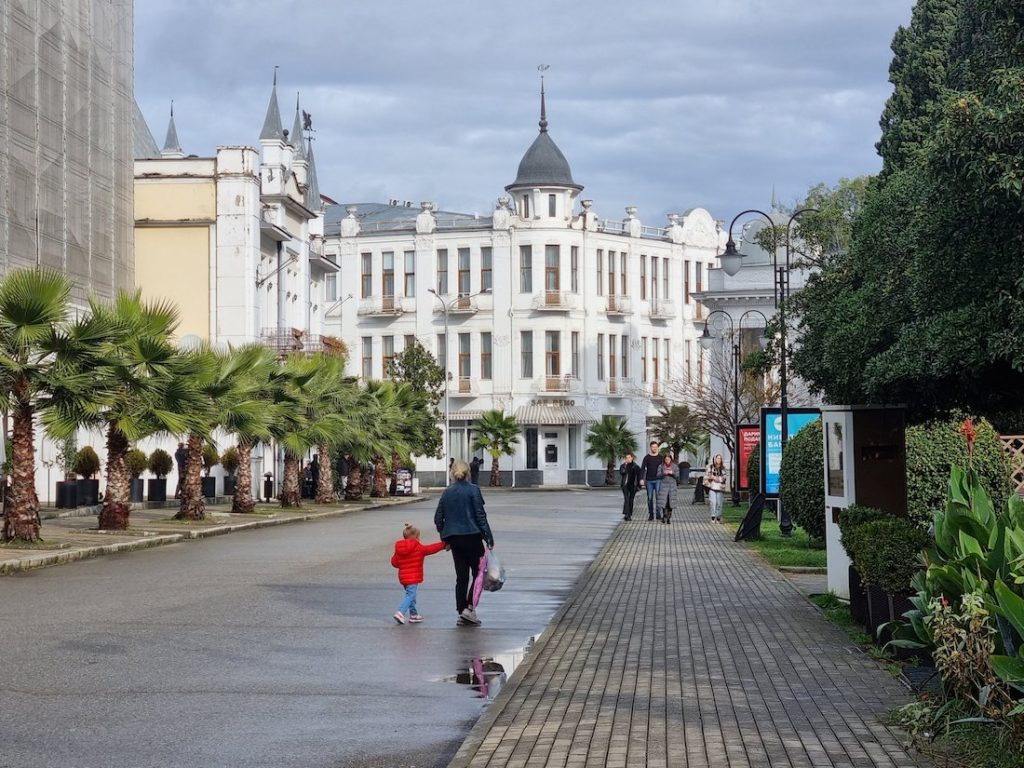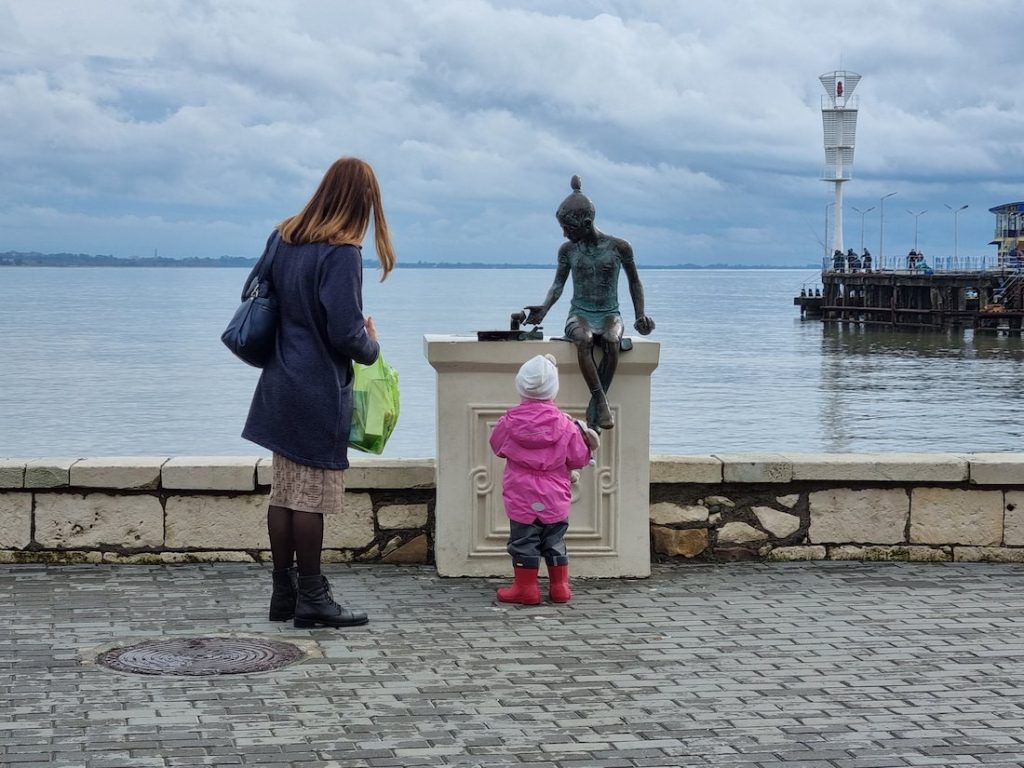Five years since abortion ban: what Abkhazia really thinks about the law
Abortion ban in Abkhazia
Abortion has been banned in Abkhazia for five years. Today, public figures and doctors are asking the authorities to allow them, at least for medical reasons. They also say that expectations of the ban did not materialize and did not lead to a boom in birth rate.
Abortions in Abkhazia were banned in March 2016 when the Abkhaz parliament passed a new health care law. The main incentive was the idea that abortions lead to a significant reduction in the birth rate in the republic.
A new round of interest in the ban on abortion in Abkhazia arose on the initiative of Lyudmila Lolua, who personally faced this problem. Lolua is a member of the public chamber of Abkhazia, an advisory body to the president and an influential public institution in Abkhazia. The problem came to her attention after her relative found it necessary to terminate the pregnancy for medical reasons.
- “I know how to change the world”. Video from Abkhazia
- Op-ed: why Russia cannot “swallow” Abkhazia
- Private laboratories in Abkhazia banned from issuing QR codes to Covid-19 patients
She could not do it in Abkhazia, as the law does not allow it. It was also difficult to do it in neighboring Sochi since the woman was not a citizen of Russia. As a result, the public chamber turned to the parliament of Abkhazia with a request to consider amending the law on health care and prohibition of abortions in particular.
Does the ban work?
Women who are determined to get rid of a child still find ways to do it – even in Abkhazia. Pills for medical abortion are in the arsenal of every obstetrician-gynecologist of the Sukhumi maternity hospital.
With the help of these drugs, doctors induce labor in later stages of pregnancy, if the child is not born on time.

Giving or selling these pills to a woman who wants to get rid of the fetus is a matter of conscience and law-abidingness of each individual doctor. They often help out their relatives and close friends like that. But there are also those who have to travel abroad for such medical services – and it doesn’t always end well. There is a case of a woman who died, because she could not stay in the hospital after a surgical abortion, and traveled from Sochi to Abkhazia immediately after the operation.
This case was also mentioned in the speeches of the members of the public chamber.
“If a woman wants to have an abortion, she will do it”
Five years have passed since the adoption of the amendments banning abortion. Non-governmental organizations conducted research to examine how the abortion ban affected the demographic situation.
Participant of the project Elita Kokoskeria, commenting on the ban on abortion, says that the adopted law actually equals the life of a woman to a fertilized egg, which is fundamentally wrong.
“The state may try to apply all measures to preserve intrauterine life, but strictly in accordance with the fundamental rights inherent in women. Otherwise, a woman in our society is perceived as an incubator or an instrument for procreation, which violates her rights and dignity. The right to prenatal life cannot be higher than the rights of women”, says Elita Koskeria, adding that the ban on abortion cannot qualitatively increase the birth rate and the legal status of abortion never affects the number of abortions.
“A woman who has decided to have an abortion will have it. The question is what role the state, represented by the health care system, will play in this”, Elita believes.

Former chairman of the Abkhazian Women’s Association, Natella Akaba, together with the leadership of the Center for Strategic Research under the President of Abkhazia, initiated the development of a demographic policy in Abkhazia, where measures to support women will be applied, because the ban on abortion, according to her, clearly did not contribute to demographic growth.
Before the ban on abortion was adopted in 2016, the annual birth rate in Abkhazia was approximately 2,500 newborns. After the adoption of the ban, most women wishing to terminate their pregnancies began to travel to neighboring Sochi.
Women who wished to become mothers would also end up getting treatment in Russian maternity hospitals. This led to the distortion of statistical data, since the Ministry of Health of Abkhazia records the number of babies born, based on the data provided by the maternity institutions of the republic.
Thus, according to the official statistics, in the first eight months of this year, a little more than 1,000 babies were born in the republic. What is the reason for such a sharp drop in fertility rates? The consequence of the ban on abortion or the fact that women prefer to give birth in Russia – there is no exact answer even in the Ministry of Health itself.
Children’s health is the consequence of a ban
“I do not argue with the fact that a constitutional amendment was adopted to protect the rights of the unborn child and mother. It is important. But when a virtually complete ban on abortion was added to the health care law, it was completely ill-considered. There are situations when a woman has health problems or an ultrasound examination shows pathologies in the fetus, and it is clear that it will not become a healthy person. In such situations, I believe abortion is legal”, says Natella Akaba.
Doctors themselves, for example, obstetrician-gynecologist Oksana Chitanava say that the ban on abortion has already led to several female deaths. In addition, because of the prohibition, women have to bear handicapped children.
Not everyone is ready to put up with this, and some go through the chain of command: to the Ministry of Health and even to parliament. According to the doctor, this situation causes great psychological harm.
“An intimate problem that should remain within the family is brought up for general discussion. This is very traumatic. It’s good if it ends in the termination of the pregnancy one way or another. If not, then the woman is forced to carry a sick or unviable child for nine months, who then dies. This ends in severe depression”, says the doctor.
Ombudsman Asida Shakryl also advocates the adoption of amendments not only for medical, but also for social reasons, since most large families live below the poverty line. The state can do nothing to help families with six, eight or even ten children. Only the charitable foundations somehow help them to survive. Every year, such families and their children are included in the statistics and reports of the Ombudsman, since they are the ones who most often face violation of their basic rights.
The Children’s Fund, headed by Asida Lomia, works with children from disadvantaged families, where there are often many children and not all of them were planned and desired. According to her, the deputies did not have the right to adopt a ban that discriminates against the rights of women and children, because it often leads to the death of the woman in childbirth.
“Because of this stupid prohibition, young children are left orphans, God forbid anyone to experience being left without a mother at four or five years old”, says Asida Lomia. Also, according to her, almost all women who wrote articles or blogs under their own names criticizing the prohibition of abortion were subjected to pressure from MP Said Kharazia.

Pregnancy check at the border?
From a legal point of view, the abortion prohibition also has some legal flaws. Leading lawyers speak about it. For example, Sergei Smyr, who ironically notes that if the state has decided to control the birth rate, then it must carry out this directive to the end and establish control on both borders, similar to the epidemiological one. For example, put ultrasound machines at the border to check every woman who leaves on whether she is pregnant and when she returns – check whether she had an abortion or not.
“This is funny and sad at the same time. But look deeper. The law does not spell out the responsibility of the mother, who, as we say, killed the child outside Abkhazia. And further. Why did the deputies not foresee the treatment that would be needed for children born with pathologies, their rehabilitation and their material maintenance in the future?”, Sergei Smyr asks, referring to the many unsightly stories that have taken place in Abkhazia since the introduction of the ban on abortion.
One of such stories involves a 15-year-old girl who tried to commit suicide because she was not allowed to have an abortion, or an HIV-infected mother who was not registered at the AIDS center, did not take therapy and did not want children, but nevertheless, according to the law, was forced to give birth, or a woman who, unable to obtain permission for an abortion, took birth-stimulating drugs and almost died of a ruptured uterus.
But the victims are ashamed to talk about this, and it is dangerous for journalists, since there are frequent cases of threats from the initiators of the ban.
Toponyms and terminology used in the publications, and views, opinions and strategies they contain do not necessarily reflect the views and opinions of JAMnews or any employees thereof. JAMnews reserves the right to delete comments it considers to be offensive, or otherwise unacceptable.


















